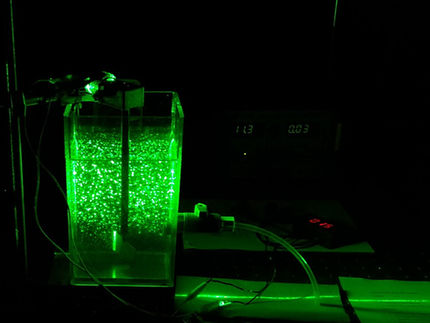Need for Innovative Industrial Sludge Treatment Chemicals to Accelerate Growth in Central and Eastern Europe
Industry participants need to consider chemicals that offer a competitive price-performance ratio and that perform better
Rising industrial wastewater volume and, hence, sludge amounts are creating a flood of opportunities for industrial sludge treatment chemicals manufacturers in Central and Eastern Europe (CEE). Currently at a growth stage, market expansion is set to be impelled by the increasing demand for innovative yet cost-effective chemicals. Stricter environmental regulations at the national and regional level will further push manufacturers to develop innovative, higher quality and more effective sludge treatment solutions.
New analysis from Frost & Sullivan, Analysis of the Central and Eastern European Industrial Sludge Treatment Chemicals Market, finds that the market earned €150.6 million in 2011 and estimates this to reach €278.1 million in 2018. This research covers chemicals utilised in four of the most important market segments that include conditioning and stabilisation treatment process chemicals, digestion treatment process chemicals, thickening treatment process chemicals as well as dewatering and drying treatment process chemicals.
“Entry barriers are high in this intensely competitive market, dominated by four well-established chemical manufacturers,” noted Frost & Sullivan Industry Analyst Anna Jarosik. “However, the rising demand for innovative and advanced sludge treatment chemicals, supported by requirements related to sludge recycling and product recovery (for instance, metals), will create opportunities for other, more specialised sludge treatment technology providers.”
Major market participants are expected to improve their chemicals, equipment and technology, and hence, the entire industrial sludge treatment process. Such efforts will be motivated by manufacturers' needs for more cost-effective, energy-saving and sludge volume minimising solutions.
Additionally, environment-oriented regulations will promote innovation. Such regulations will pressure industry participants to improve chemical performance and composition levels to meet stricter environmental, quality as well as healthcare standards.
Ultimately, strong and active customer partnerships will be critical to accelerate the development of highly effective industrial sludge treatment chemical solutions. Active communication and partnerships between chemical manufacturers and industry participants will also be significant in developing innovative solutions that meet market needs.
Other news from the department business & finance

Get the analytics and lab tech industry in your inbox
By submitting this form you agree that LUMITOS AG will send you the newsletter(s) selected above by email. Your data will not be passed on to third parties. Your data will be stored and processed in accordance with our data protection regulations. LUMITOS may contact you by email for the purpose of advertising or market and opinion surveys. You can revoke your consent at any time without giving reasons to LUMITOS AG, Ernst-Augustin-Str. 2, 12489 Berlin, Germany or by e-mail at revoke@lumitos.com with effect for the future. In addition, each email contains a link to unsubscribe from the corresponding newsletter.



























































